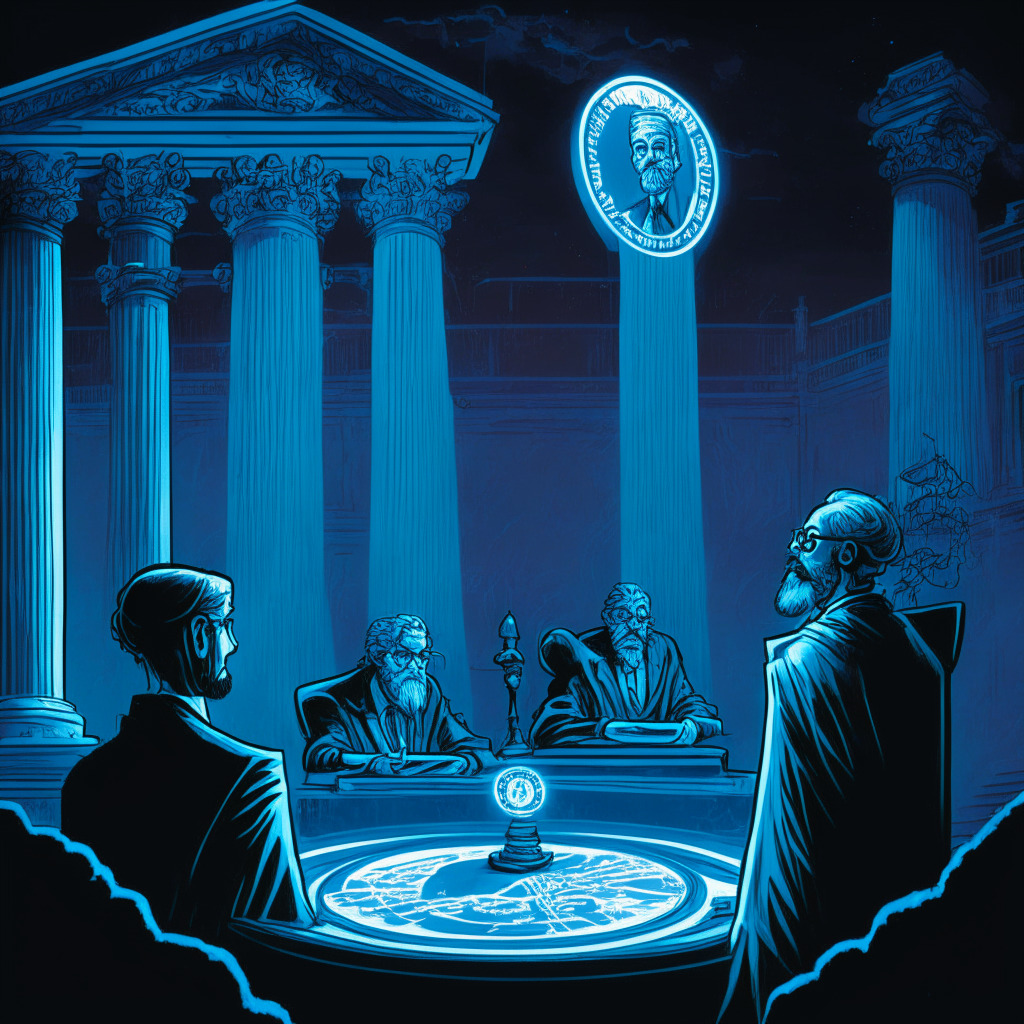In the world of cryptocurrency, processes and decisions are seldom devoid of controversy. A recent highlight from the US legal system illustrates this point quite well. Terraform Labs, known for issuing the stablecoin TerraUSD (UST), pegged to the US dollar via the LUNA token, found themselves in legal hot water with the U.S. Securities and Exchange Commission (SEC). Unfortunately for Terraform, their motion to dismiss the lawsuit ended in the denial by a federal judge, Jed Rakoff, hailing from the US District Court for the Southern District of New York.
What’s striking about this development is Judge Rakoff’s rejection of a precedent ruling involving Ripple Labs; this was a case where Ripple faced the SEC over the XRP token’s legality. Judge Analisa Torres earlier ruled in favor of Ripple with regards to the token’s availability on secondary platforms for retail investors, without breaching securities law. However, Judge Rakoff saw things differently in Terraform’s case.
The SEC’s lawsuit against Terraform and its founder, Do Kwon, bases on charges of investor deception about UST and allegations of fraud. Supporters of Terraform Labs could argue about the practical use of the UST coin. They could maintain that purchasers went for the token’s utility as opposed to a likely investment.
It’s also interesting to note that Terraform lawyers alluded to the Ripple ruling in their argument. Judge Torres’ verdict drew a line between Ripple’s violation of securities laws through institutional investors’ sales and retail investors’ purchase on intermediary exchanges. Yet, Judge Rakoff seems to debunk this distinction in his order.
Implicit in Rakoff’s statement is a shot at Howey’s undefined territory between buyers: “That a purchaser bought the coins directly from the defendants or, instead, in a secondary resale transaction has no impact on whether a reasonable individual would objectively view the defendants’ actions and statements as evincing a promise of profits based on their efforts.”
At this juncture, the SEC’s allegations against Terraform are assumed to be factual during the motion to dismiss, as emphasized by the judge. The SEC claims that Terraform engaged in a public campaign urging both retail and institutional investors to buy UST.
The saga revolving around Terraform Labs, SEC, and the legal intricacies within the cryptocurrency paradigm underlines the need for further clarity and development in cryptocurrency regulations. Notably, the approach taken by the judiciary system scaffolds the progression of governing such digital assets.
Source: Coindesk




